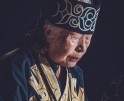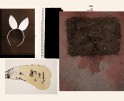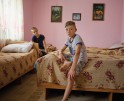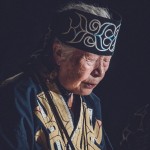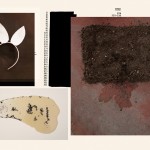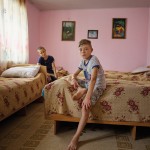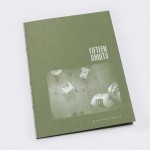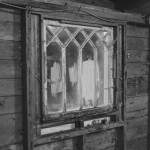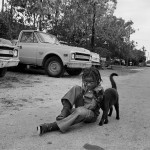CENTER Awards: The ME&EVE Award
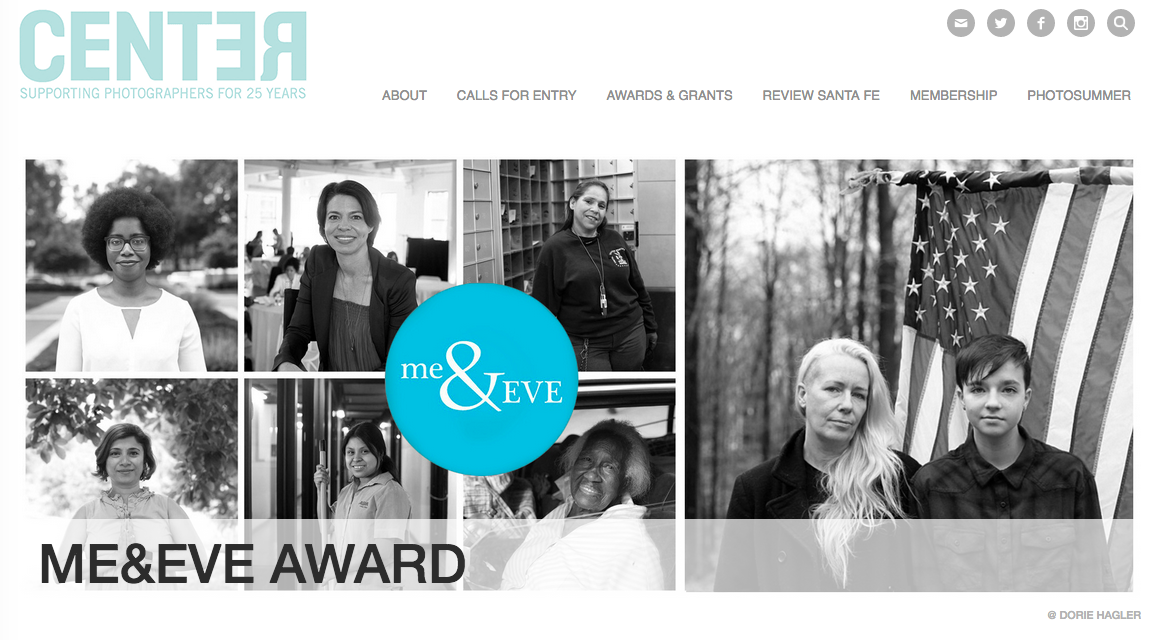 CENTER recently announced the new ME&EVE Award for women 40 years of age or over, who use their cameras to address social justice issues. The award also welcomes submissions from transgender and non-binary individuals. I was curious as to how this award came about and about Dorie Hagler, the documentary photographer, public artist, and social justice activist who is funding the award. Today I am featuring her own project of me&Eve that inspired her philanthropic philosophy and efforts to make a difference in someone’s life, one person at a time. Dorie’s story follows, plus an interview with this generous photographer.
CENTER recently announced the new ME&EVE Award for women 40 years of age or over, who use their cameras to address social justice issues. The award also welcomes submissions from transgender and non-binary individuals. I was curious as to how this award came about and about Dorie Hagler, the documentary photographer, public artist, and social justice activist who is funding the award. Today I am featuring her own project of me&Eve that inspired her philanthropic philosophy and efforts to make a difference in someone’s life, one person at a time. Dorie’s story follows, plus an interview with this generous photographer.
Dorie Hagler’s work has appeared in The New York Times, Tina Brown Live Media, NYMAG, Sports Illustrated, Forbes, Glamour, People, The San Francisco Chronicle, Chicago Tribune, New Mexico Magazine, and many others. In 2016 Hagler founded me&EVE, a visual social justice movement which shares finely distilled stories of ordinary women.
Her work has been exhibited and commissioned and collected by museums, state agencies and individual collectors. Hagler was awarded a competitive $30,000 commission through New Mexico Art in Public Places to document and produce a public art installation about the spirit of Lithography at The Tamarind Institute. She has made photographs for various humanitarian institutions and foundations including The Coffee Kids, The Kellogg Foundation, The Cancer Monologues, The Truman Foundation and The Coffee Trust.
Hagler is a frequent speaker at Adorama and during warmer months she leads photowalks for New York camera enthusiasts. She spearheaded a photography workshop for incarcerated women at Riker’s Island and is co-producing a documentary film about criminal justice.
In 2017 the MAE foundation awarded Hagler a $5,000 grant for her project me&EVE. Hagler’s goal is to use her visual communication and storytelling skills to emphasize the importance of our interconnectedness and shared humanity.
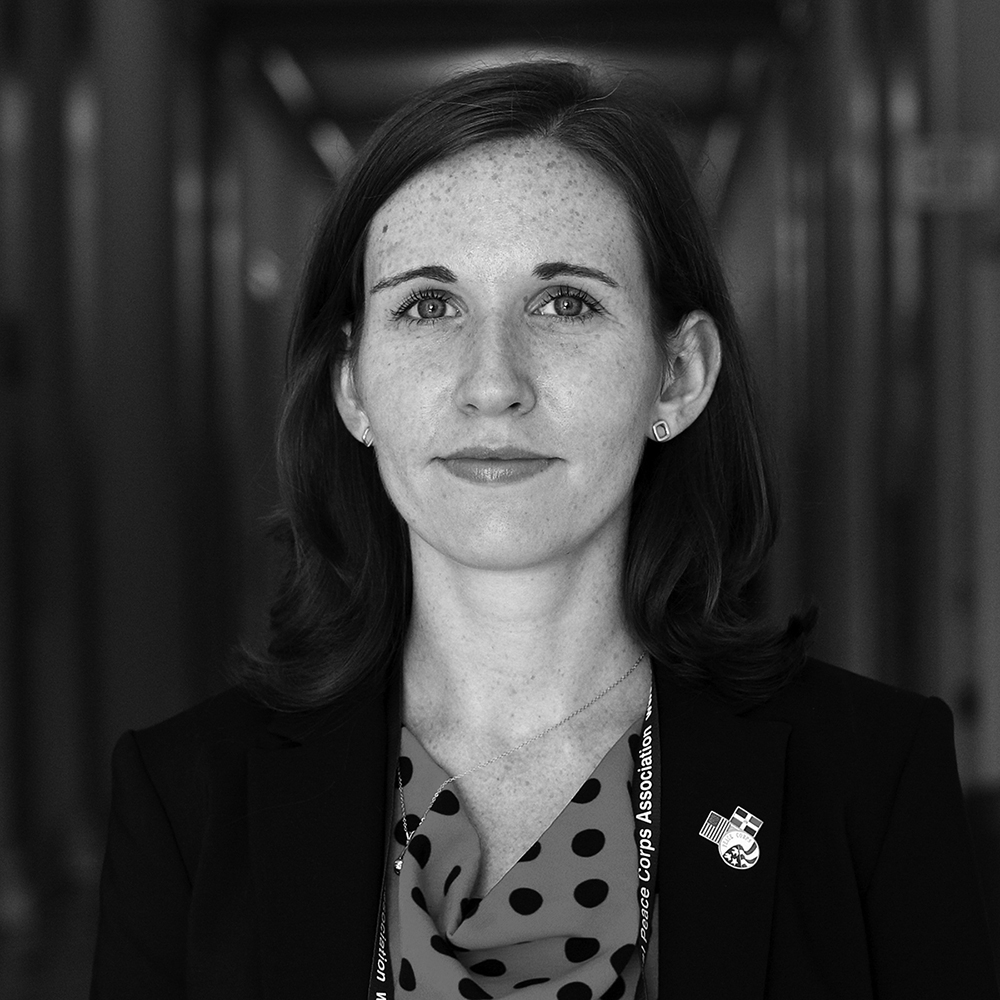
©Dorie Hagler, “Now when I go running I feel myself tensing up if I pass a bunch of male construction workers – just bracing myself for some rude comment. But really, I didn’t become aware of gender discrimination until I served as a Peace Corps Volunteer in the Dominican Republic. It is a very machismo culture there and I couldn’t go out at night by myself and really had to think about what clothes I wore on the street. To protect myself I learned how to avoid eye contact. When I came back to the United States I read Sheryl Sanberg’s book Lean In and realized that women are viewed differently in the workplace.” I also became aware that I wasn’t making eye contact with men and had to unlearn the protective habit I had developed in the DR.” – Susan Stine is a Returned Peace Corps volunteer and Programs Assistant at the InterAmerican Foundation.
Here is Dorie’s story on the inspiration for the me&EVE Grant:
In the 1990’s I was a Peace Corps volunteer in Huitan, Guatemala I worked with Dominga, a young indigenous woman with a new born baby. When she and her boyfriend got pregnant – he stayed in school and became a teacher and she dropped out. I encouraged her to go back to school but when when my two year service ended and I left Guatemala, Dominga was pregnant with her second child.
Fast forward 4 years. I squeezed in a short visit to Huitan while shooting an assignment in Guatemala and found Dominga in her windowless house, pregnant with her third child. Her husband, now an alcoholic, was physically abusing her. She asked me for $100 dollars for a propane stove to speed up her cooking. I seriously wondered how $100 could possibly make a difference in this situation, but I gave her $100.
Ten years later I brought my own daughters to Guatemala to visit Huitan. When I went looking for Dominga, I was told I would find her at the school. I found her sitting in a school office, her office. She cried when she saw me and then through tears, she told me this story.
“With the $100 I bought a stove, so I could cook enough food in the morning to allow me time in the afternoon to return to school and then heat it up food on the stove. I could barely afford my uniform or the books and I wore the same clothes every day for two years, but I worked and I worked and I became a teacher. They gave me a job at the farthest possible school to get to and after two years I made my case that I should be moved closer because I had children at home. Eventually they gave in and moved me closer. I taught for 8 years and then I became the Director of this School. You told me I could do it. You listened to me and encouraged me and gave me the $100 when I needed it. Nobody believed I could do this and now look around. I was the first mother to go back to school and now there are so many other mothers that have followed my lead. I have five children now and I earn more money than my husband. He respects me and doesn’t beat me anymore.”
Just because I listened to Dominga and gave her what she asked for, her whole life changed. Sure, it cost $100, but she had a plan and because I believed in her, she believed in herself. That stuck with me and as I viscerally felt the wave of feminism rising in the world – I felt compelled to start me&EVE. In 2016, on International Women’s Day, I launched the project by photo-busking in Grand Central Station. Photo-busking is when I go to a public place with my camera and a wireless printer and I photograph women for free and give them their print. Instead of a pop-up store, it’s a pop-up activism event where women gather, have their photo taken and talk about women’s issues. What I know is listening to someone for ten minutes can change a person’s life and that can change the world.
Since that day in Grand Central, I’ve witnessed and featured over 300 women on my blog and I’ve photographed and given free prints to hundreds more. I raised $16,000 on Kickstarter by offering tshirts with the me&EVE tagline, “Damn Right I Ate The Apple”. me&EVE has been featured in NYMagazine, Forbes, abcnews.com, Upworthy and The New York Times. And in 2017 I was awarded a $5,000 grant from the MAE Foundation. In 2019 I partnered with CENTER to create the $5,000 me&EVE award open to female photographers 40 years and over whose work addresses social justice.
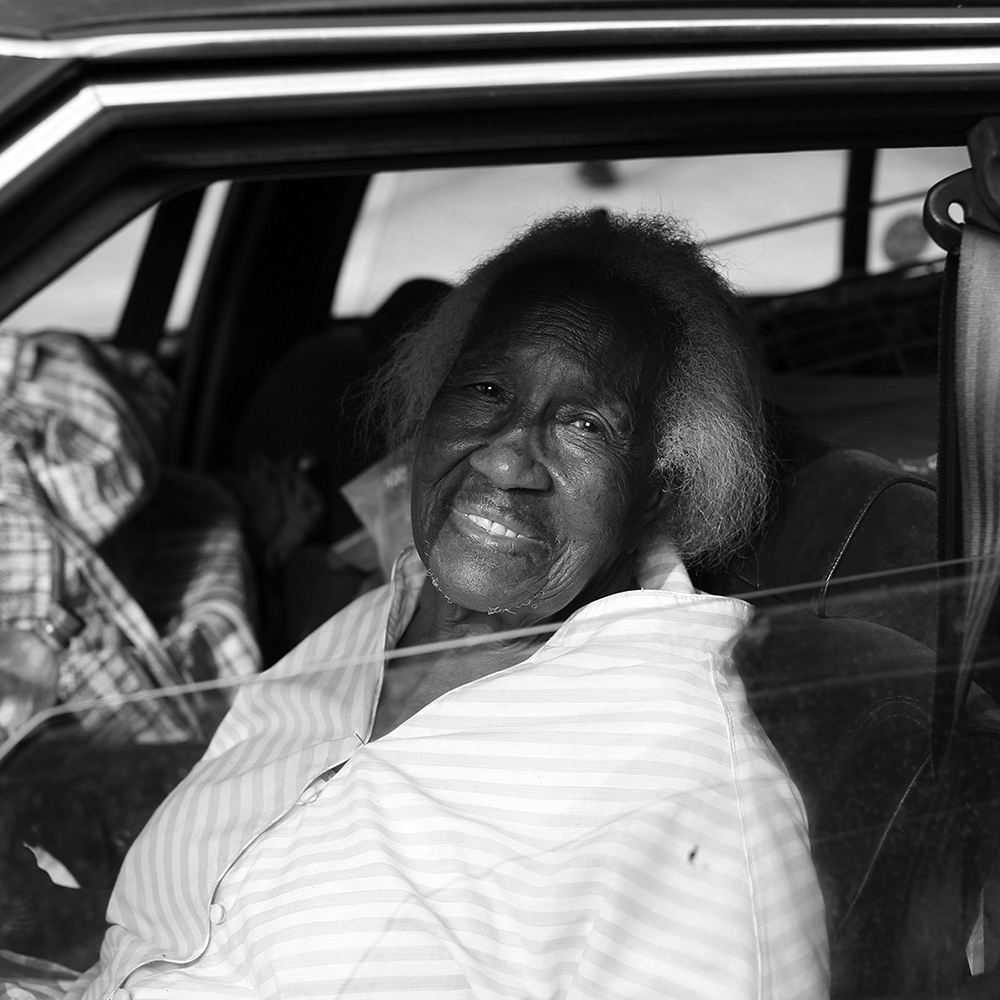
©Dorie Hagler, “I was a Pentecostal Preacher for 40 years. Now I’m too old, I’ll be 92 next Christmas. My arthritis and sciatica make it hard for me to walk and get around so I have to take it easy. But God has blessed me and people always help me when I need help.” – Hortense L. Bell sells clothing at the Brooklyn Flea Market.
How did the The me&EVE Award come about and what is your connection to CENTER?
The idea for me&EVE was bouncing around in my head since I moved to NYC in 2011. I am one of those people who has spontaneous and thoughtful conversations with strangers wherever I go. I am not sure if this happens because I’m a photojournalist or whether I became a photojournalist because I like connecting with people. I sat on the idea for a while because honestly, I didn’t want to be a “Humans of New York” copycat. But in 2016 I reached my tipping point and viscerally felt that something was brewing in our country around gender. me&EVE is not about #metoo, it’s broader and my goal is to give all women, not just famous ones, the opportunity to be seen and heard. The aggregate of women’s stories is what makes the project powerful. I can’t change everything but with each woman I witness, each feature I post, each presentation I make, I toss a pebble into the pond of social change.
Over the past nearly 3 years I’ve published features of more than 300 women, asking them same one question. “What is something in your life that stands out as memorable or significant that wouldn’t have happened if you were not a woman?” The answers are never the same.
What I find interesting is that this project is more about connection, than it is about photography and it’s impacted me and others in ways I would never have anticipated. Behind the camera I have always been more passionate about photographing long form documentary projects about culture, religion, economic disparity – the topics that many photojournalists are interested in. And like many documentary photographers my hope was that by witnessing our shared humanity I would be impacting the world for the better. And then, I started this project and I realized that it wasn’t the published feature, the portrait, or the audience on social media that was creating change – it was the ten to fifteen minutes of undivided attention while two women connect that was creating change.
In 2017 the MAE Foundation awarded me&EVE a $5,000 grant. I was 49 years old and it was the first grant I had ever received. That support and the acknowledgement of the project was worth far more than the actual money. Though of course, the money helped too – after all I live in NYC.
That same year my Father was diagnosed with cancer and he died in 2018. My father was my champion and he was a kind, generous and hardworking person. I learned so much from him, including that giving someone an opportunity is a true act of generosity. I created the me&EVE award in his honor because I am so grateful that he was my father and because I believe that everyone needs a champion.
Partnering with CENTER was a no-brainer for me. I lived in Taos, NM for more than 20 years and I have attended, volunteered and taught workshops at CENTER. They were immediately enthusiastic about this award and we feel fortunate that Kathy Ryan, The Director of Photography, at the The New Times Magazine has agreed to be the juror for the me&EVE award.
I have come to see that starting with making a difference in one person’s life is a good place to start – this isn’t the Guggenheim or the Eugene Smith grant nor am I a Rockefeller, but I can do this. I call it “micro-philanthropy”.

©Dorie Hagler, Cybele Tamulonis (Mother) – will be marching in NYC: “My earliest childhood memory is being pushed by my mother in a stroller through Central Park with the Bread and Puppet theater while we protested the Vietnam War. I can’t believe it’s 2017 and women’s rights and education are being targeted. Really anything that pertains to equality will be targeted. We live in Blairstown, NJ, and this is a very conservative community. I am marching so that we can join other women and have our voices heard. I am going to ensure that Evie has full control over the rights of her body.” Evie B. age 13 (Daughter) – will be marching in NYC: “I am marching because Trump is only supporting white working males. I think he will make more hate in the world and is trying to kick people out of the country because they are different. He is possibly taking away hate crime legislation. I live in a town surrounded by very conservative Christian people. It’s very stressful trying to figure out who I am in this place. I don’t feel safe to explore who I really am and who I want to be.”
Why are your focusing on women over 40 who use their camera to address social justice?
For the same reasons that I was compelled to start me&EVE – I am choosing to make this award for women 40 years and over. In recent years there has been growing awareness in the photography industry about the need for more diverse perspectives behind the camera. And as much as I support all the initiatives to help emerging photographers, I think they leave out a population that has not benefited from the new awareness of how homogeneous the industry has been until now. Fortunately I know so many talented female colleagues who, despite the barriers they have experienced, are still holding their cameras high and making really strong work. Truthfully, I don’t like the idea that I am making specific “age” requirements – I wish I didn’t have to. But, the world is “woke” enough now, that this won’t be required for long. In the meantime this demographic of binary and non-binary women over 40 deserves to be recognized.
The me&EVE award focuses on social justice because that is what I am passionate about. My goal in life has always been to make a difference, to help where and who I can. Many years ago, my project Keeping Faith, was a finalist for a grant – I didn’t win, but when I went to pick up my portfolio one of the jurors was there and took the time to tell me that he really liked my work. I asked him where he thought my work was best suited and what I might do to strengthen my portfolio. He said, “Your work is strong, it’s authentic. But it’s quiet and quiet work doesn’t usually win prizes. The value of what you are doing won’t be realized in your lifetime.” I loved that he appreciated how I was documenting Northern New Mexico but I am not a particularly patient person and I hated hearing that I’d be dead before my work would create any change. But then, social media happened. Now photographers can share their images with an audience of their own making and can facilitate change in ways that was not possible before. This is exciting to me. This is what I want to champion. And just as I have come to see that starting with making a difference in one person’s life is a good place to start.
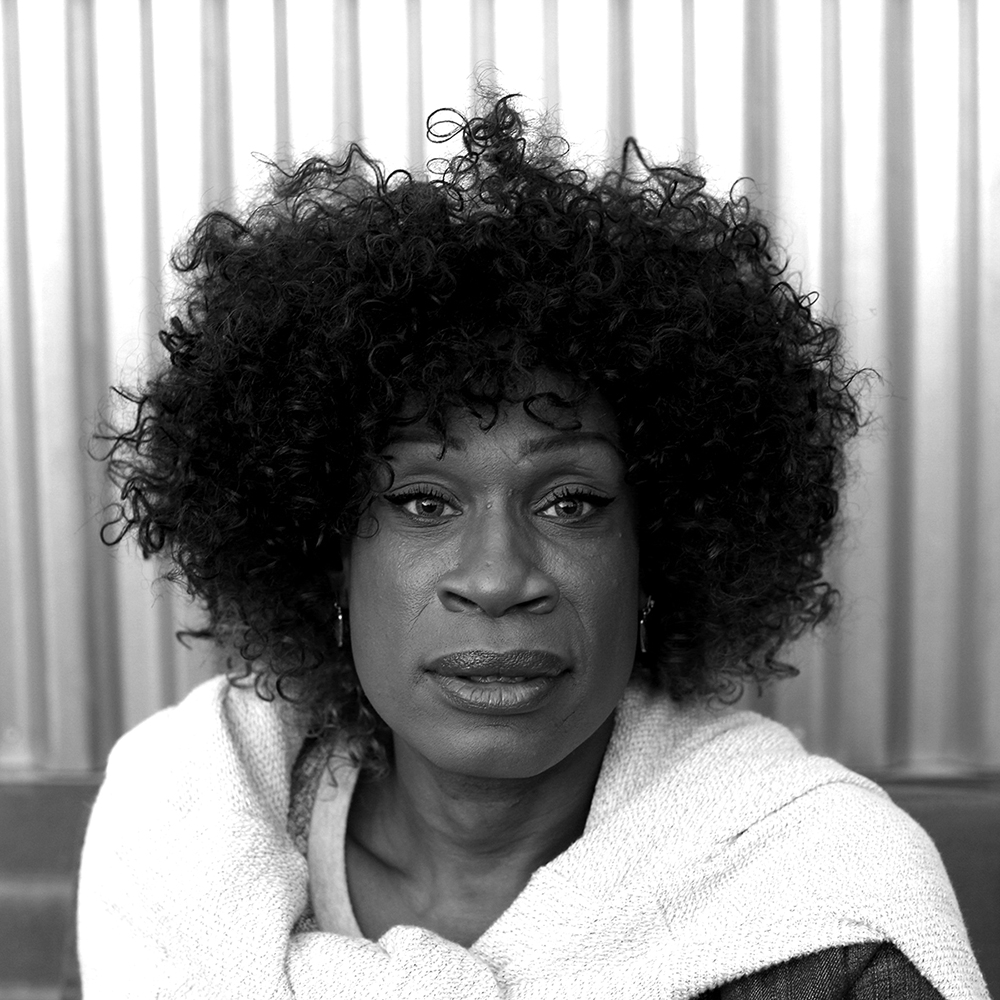
©Dorie Hagler, “When I was a sex worker, I was outed by Governor Chris Christie and the NJ District Attorney. They accused me of being a Madam and published a map to my home. It was terrifying – but because of that experience I am a formerly incarcerated sex worker and a role model and spokesperson for not just the Trans community but for all women.” – Ceyenne Doroshow is the author of “Cooking in Heels” which she published with the help of the Red Umbrella Project.
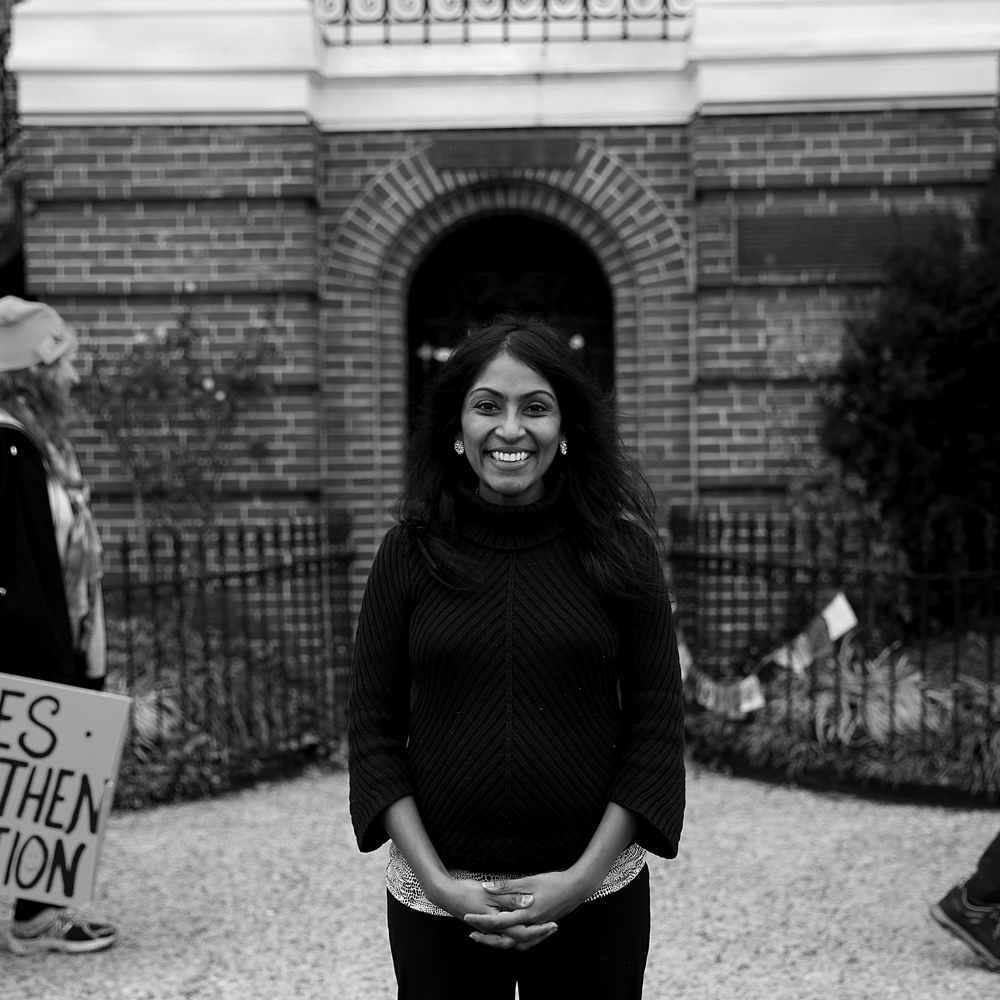
©Dorie Hagler, “I was born in Sri Lanka and my family and I were planning to move to Nigeria. My parents had already bought the plane tickets. And then, fortunately their green cards came through and we moved to the United States. If we had moved to Nigeria, I would have lived in the region of Boko Haram. Here, I could become anything I wanted. This made the Let Girls Learn campaign very personal for me. It helped me have the empathy and determination to be a champion of women’s education.” Krishanti Vignarajah served as the Director of Policy for Michelle Obama and launched the Let Girls Learn campaign and was a Democratic Gubanatorial candidate in Maryland in 2018.
Tell us about your growing up and what brought you to photography?
After I graduated from the University of Colorado with a degree in Political Science and Film Studies – I was living in Denver working as an editing assistant on a feature film. On January 20th 1992, I left the editing studio to take a walk. It was Martin Luther King Day and I slung my camera over of my shoulder and went to make photos of the rally. It turned out, the Ku Klux Klan, had gotten a permit to gather on the steps of the capital that day. In the park the rally was celebrating MLK and urging people not to engage with the KKK. But the hate filled speech on the steps of the capital lured people into a conflict. I witnessed the hate growing and my instinct wasn’t to sing and celebrate in the park with the rally or to shout at the KKK. My instinct was to make photographs. When I look through my lens, life and emotions are magnified greatly – the good and the bad. But that day, I didn’t realize that being a witness was the way I was going to make a difference in the world. I continued to work in the film industry and one day I was working as a production assistant on a commercial and I watched the Director and the DP argue for nearly the entire day trying to determine from which angle the taco would look “beefiest”. I sat there watching the glaze of donuts on the craft services table dry up and felt lost and incredibly cynical about the world and wondered how I was ever going to contribute in a meaningful way. It was then that I started looking into becoming a Peace Corps volunteer. I served in the Peace Corps in Guatemala from 1993 -1995. I was young and idealistic and really thought I could change the world. While in Guatemala I had my still camera with me and began photographing the village where I lived and sharing those photos with the community. What I’ve come to learn from being in the Peace Corps is how giving one person and opportunity can lead to greater change than you can imagine. When I returned back to the US, a few of my friends who were photojournalists trained me and helped me land a job as a newspaper photographer in Taos, New Mexico. Each day, each assignment brought a new adventure and I loved and still love the challenge of distilling a whole story down to one or a few images.
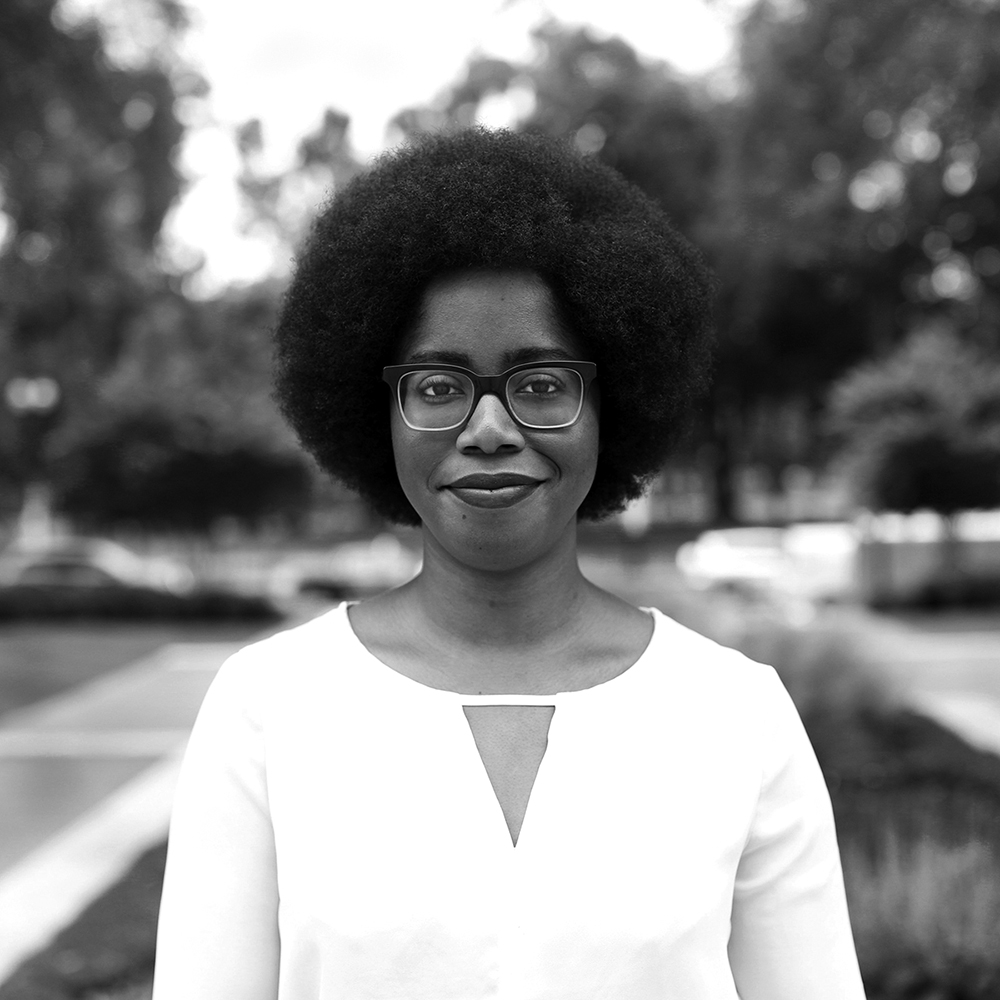
©Dorie Hagler, “I was never told about masturbation. I was never told about the clitoris. My family is from West Africa and I had a lot of internal shame about my body and about my sexuality. My first orgasm was a life changing experience- I was determined to learn about my own body intimately before anyone else did.” – Dalychia Saah is a sex educator, and the co-founder of Afrosexology.
How did you come to have the focus of storyteller and advocate?
I’m not sure that I intentionally set out to be a storyteller – I just set out to make a difference somehow. And I’m insatiably curious about people. My camera has magnified my journey and enabled me to connect with just about anyone I meet. And from connection comes love and the desire to share and advocate.
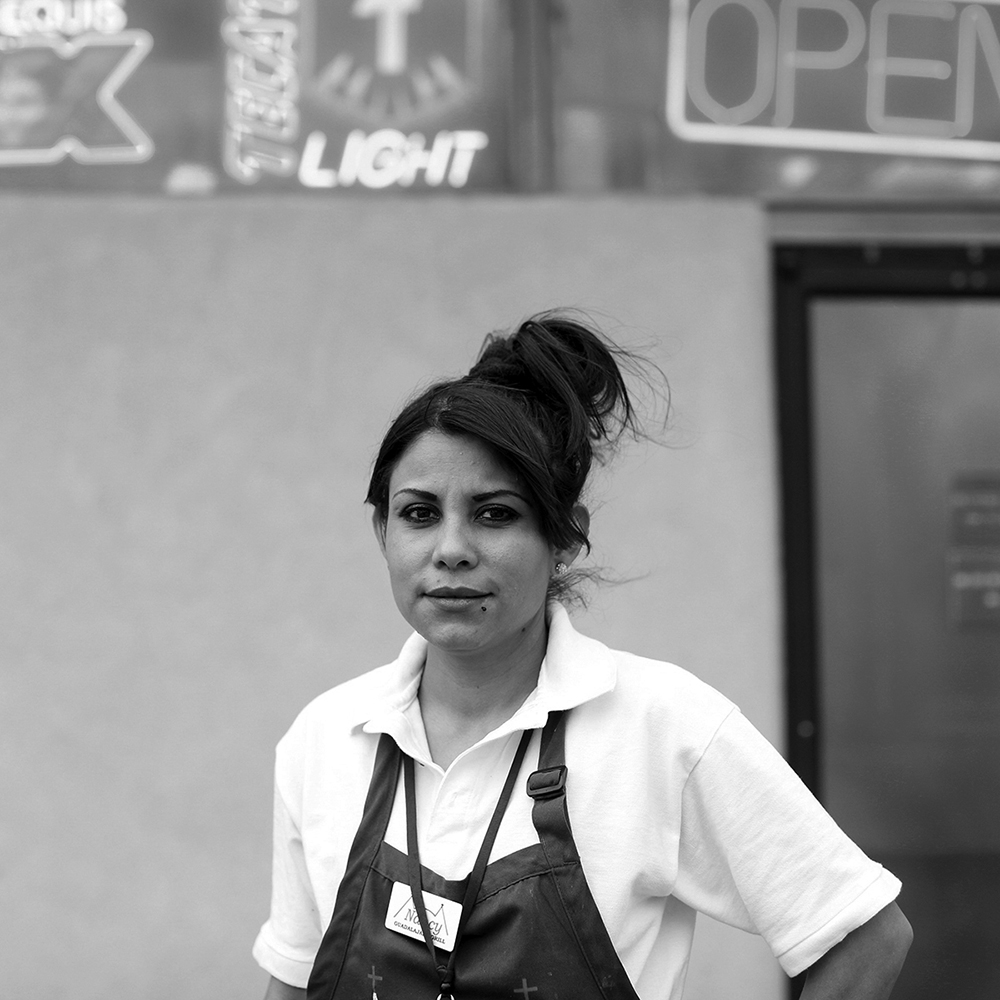
©Dorie Hagler, “My daughters are 9 and 12 years old. I moved here from Mexico eight months ago so that I can work and send money home to them. I’m a single mother and I can earn more money here. I’m sad without them but I will stay and work for as long as God allows me to.” – Nancy is a single mother from Mexico who works as a waitress in a Mexican Restaurant in New Mexico.
Can you speak to the power of photography?
My first instinct at that MLK celebration so many years ago was to use my camera as a tool. It is a tool and I continue to discover new ways to use it. What me&EVE has shown me is that just the act of seeing someone, of witnessing them and acknowledging that their story matters and is valuable, whether or not anyone ever sees the photo or reads the interview.
As a newspaper photographer I listened to the police scanner and wore a pager while driving my dusty Subaru around Northern New Mexico photographing wild fires, ditch cleaning and junior rodeo queens. I never dreamed that within the next decade we would all carry phones that were also news gathering devices.
Despite that all of us are attached to our devices and despite the deluge of imagery we scroll through each day, I believe more than ever that photographs have the power to connect us and provide us the opportunity to stand in someone else’s shoes – if only for a second.
When I was in college I had a Film History class with Stan Brakhage, who is known to many as the father of non-narrative filmmaking. He said watching films together in a dark theater was the modern version of gathering around the campfire to hear the elders tell stories, it was a shared tribal experience That stuck with me and I don’t think it is limited to movies. I think when we as a society react strongly to photographs in print, online or on a museum wall – it is also a shared tribal experience.
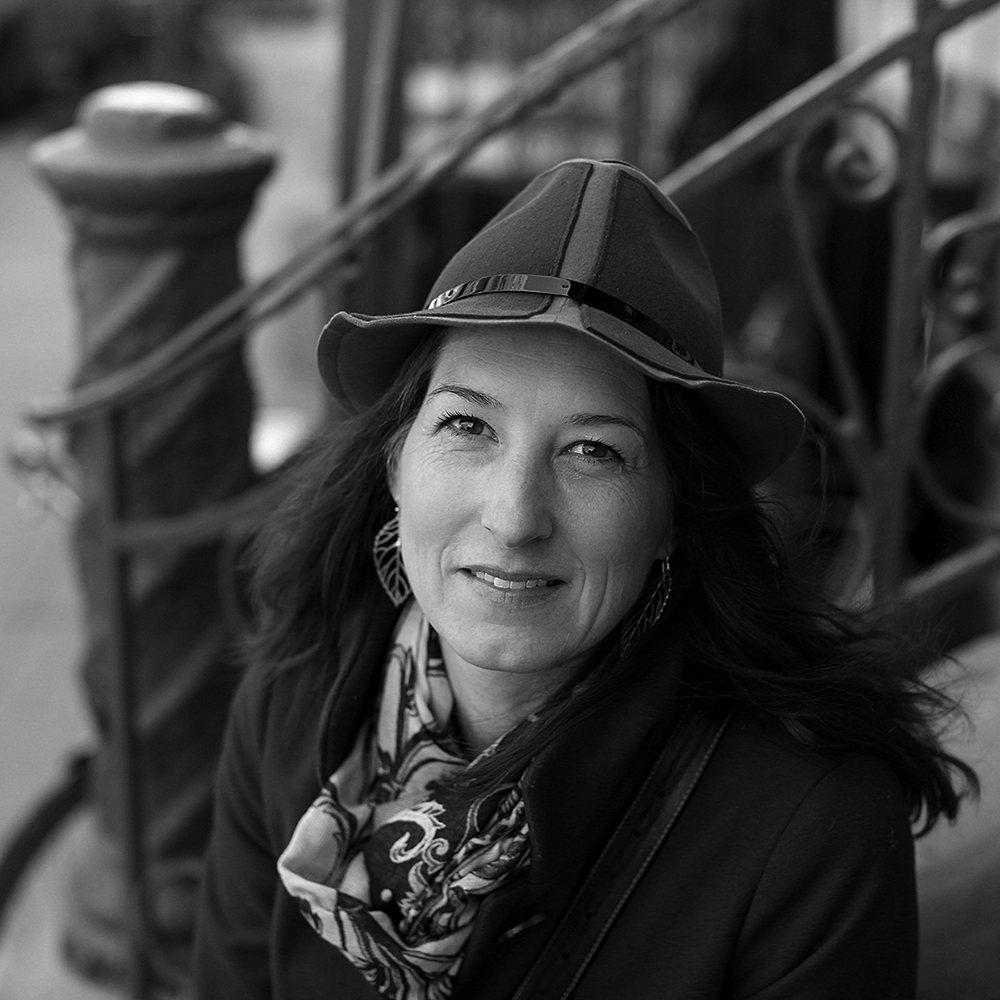
©Dorie Hagler, “I loved giving birth. I loved the experience of surrendering to the pain and the rhythm of my body that knows how to give birth. I did natural childbirth both times and both times I went in to the hospital at 8 am and delivered my babies by 3pm. It was all in a day’s work. I look back at those two births as the most incredible experiences, and no one can take that away from me.” Lynee is a Principal and Urban Planner at Williams and Works where she is also the youngest and only female Principal.
What’s Next?
I plan to take a few road trips through the South, the MidWest and the Northwest this Spring and Summer so I can meet and feature women from these regions. A few publishers have expressed interest in making a book and once I’ve completed these trips I will be putting together a book proposal. After that I plan to involve female photographers from other countries to contribute features about women in their communities to me&EVE. The way I see it if there are more “me’s” behind the camera – we can celebrate more “EVE’s”.
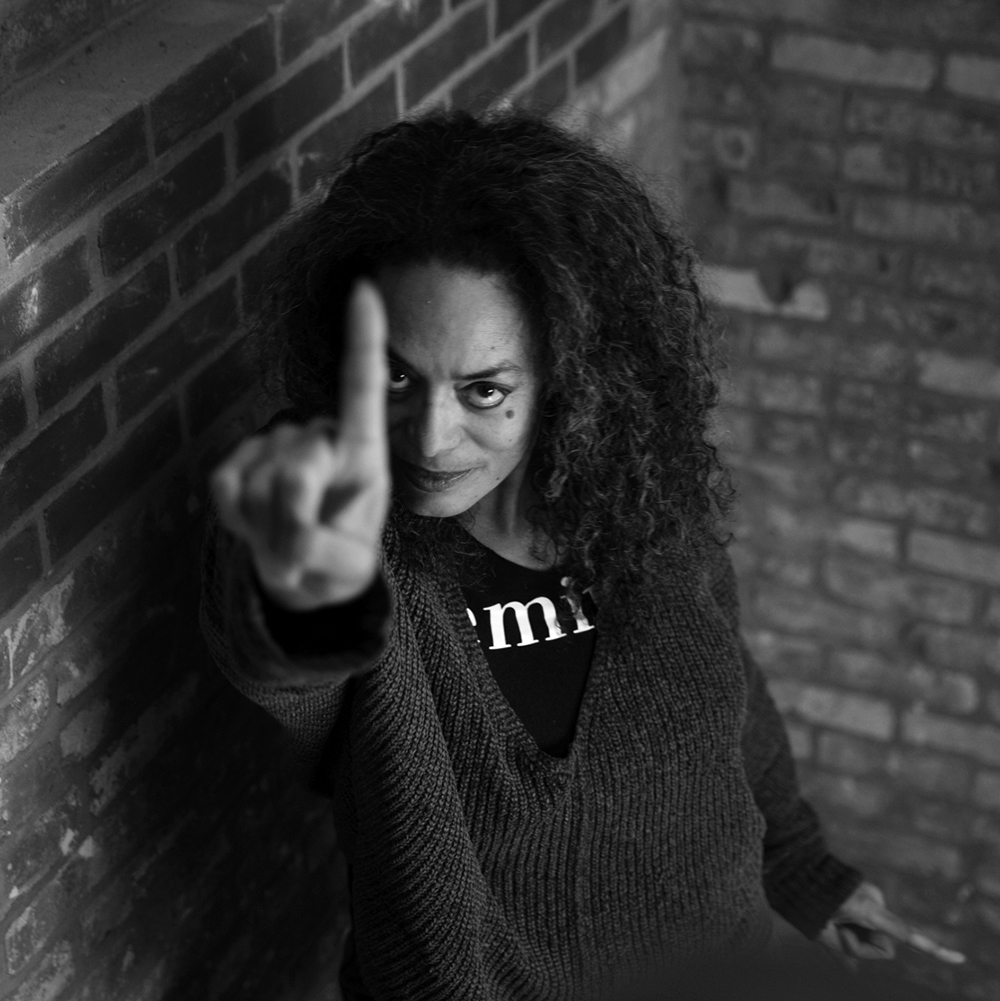
©Dorie Hagler, “Feeling the rage and despair after Trump was elected and hearing there was a protest planned for D.C. and knowing that too many women – without means, without freedom or with too many responsibilities to drop everything and run off to a rally would be left out of expressing collective rage broke my womanhood heart. That’s when I realized there needed to be a protest for all women and girls because feminism is collaborative by nature. Women don’t need leaders we just need organizers because we all need equal rights, representation, justice and opportunity. So I started 1at1.org so that for one minute around the globe women can unite. In 2017, 500,000 women and allies participated. This Saturday at 1pm we call for women and allies to rise again in protest of the Trump shutdown that disproportionately effects women and especially lower income women of every race. This is how we put our voice where our vote wasn’t enough. “ Aly Palmer is a member of the band BETTY, an activist and the founder of 1at1.org. For more information about Saturday’s event visit 1at1.org
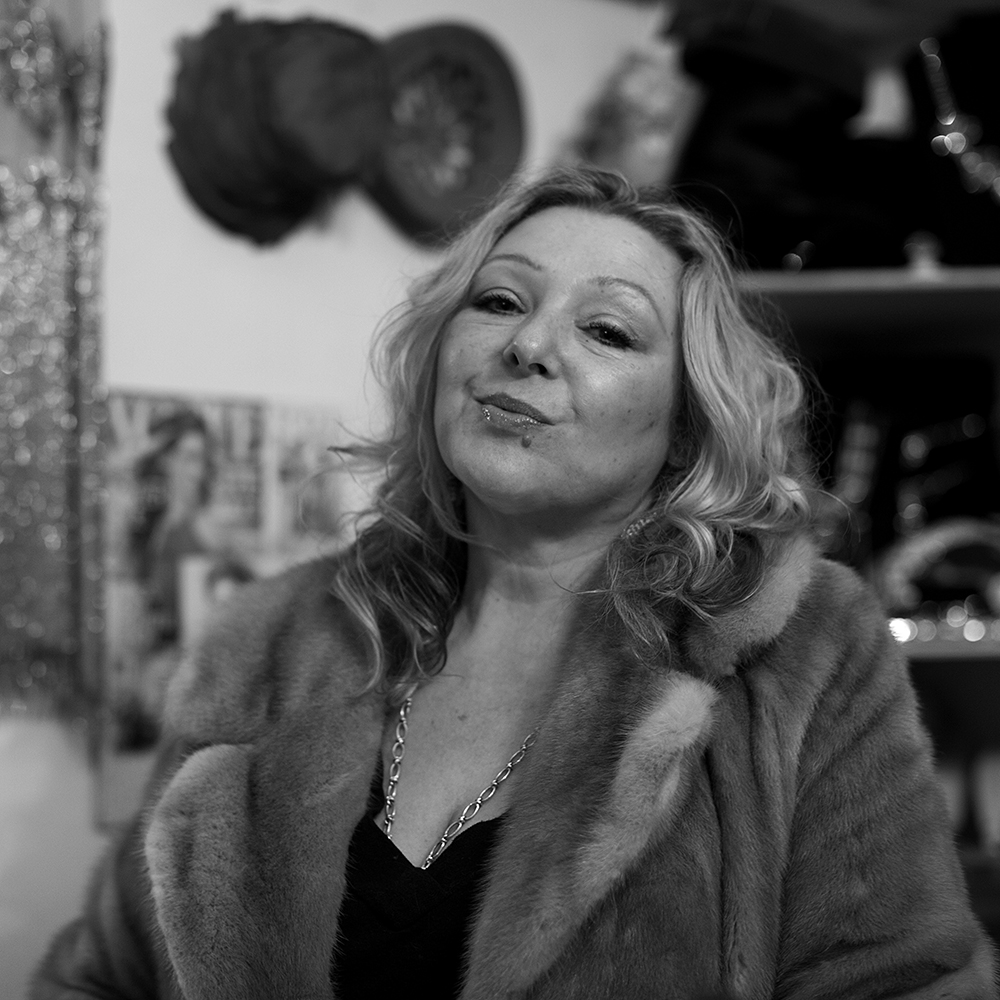
©Dorie Hagler, “When I got married I had a party for the family in New Orleans. At the party, my grandfather Deville said, “Well there goes the acting career.” He was right because I gave up so many opportunities. My husband was not supportive of my acting career, he wanted me to be his secretary and have babies. I stayed married for 12 years and left when I was 30. If I were a man I wouldn’t of had to ask anyone’s permission or question any of those opportunities.” – Bambi Devilles Vintage Clothing owns a vintage clothing shop in New Orleans.
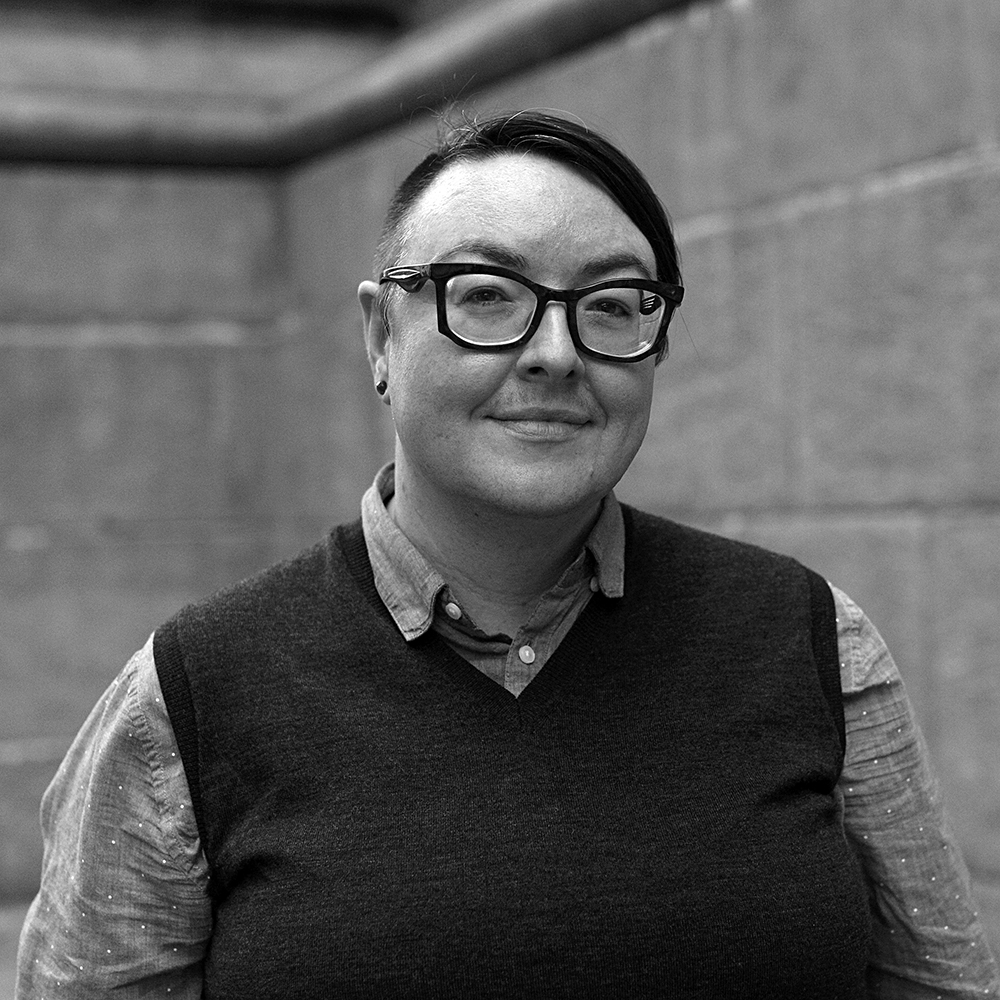
©Dorie Hagler, “I never learned how to mow a lawn. I grew up in the suburbs and my Dad never taught me how mow the lawn. My Mom taught me to clean bathrooms, wash dishes, do the laundry and how to bake. I feel robbed of that experience and I feel like that was very gendered and symbolic probably of other things I didn’t learn how to do because I was a girl.” – Christa Orth is a documentary filmmaker, her latest film is North.
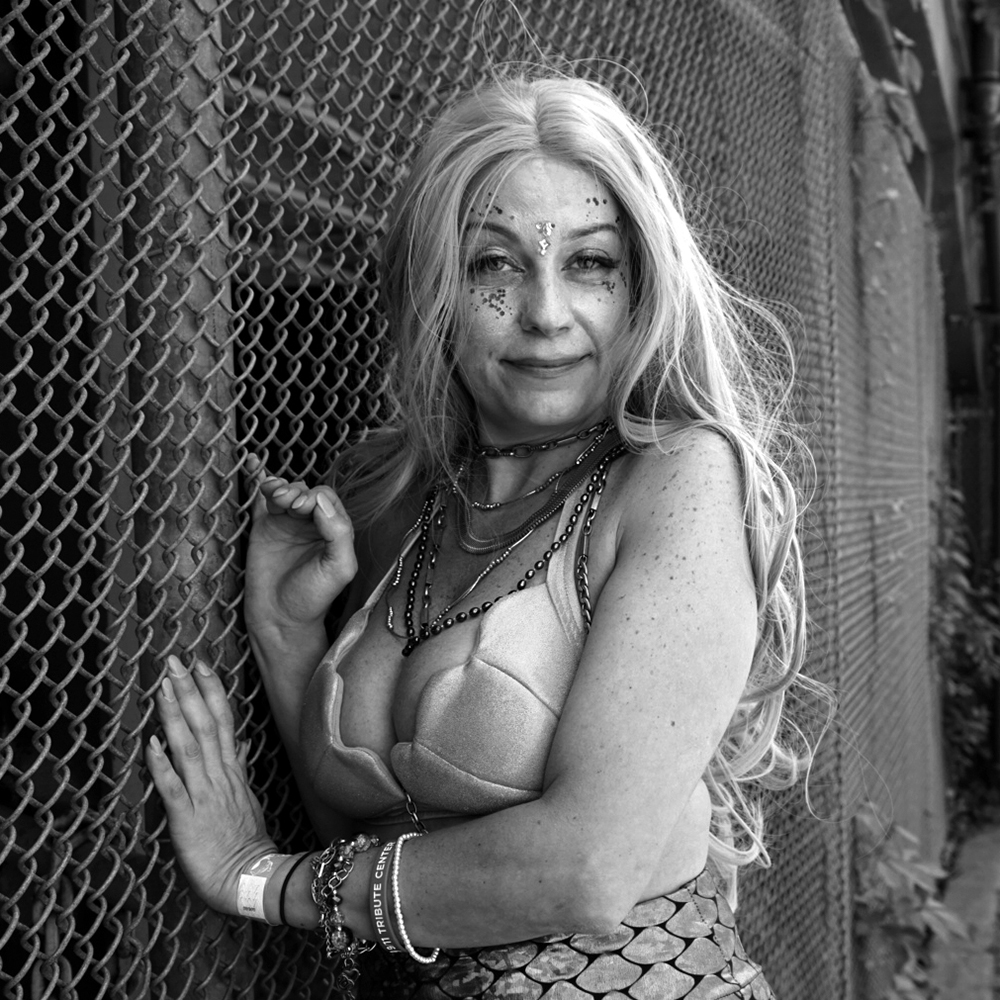
©Dorie Hagler, “Being from Brooklyn I’m outspoken and I speak my mind. Everything I’ve gone for in life I’ve gotten. Just this week I got a job with the government.” – Heather W. Malone participated in the Coney Island Mermaid Parade. Follow her on insta:@bklynsnaps
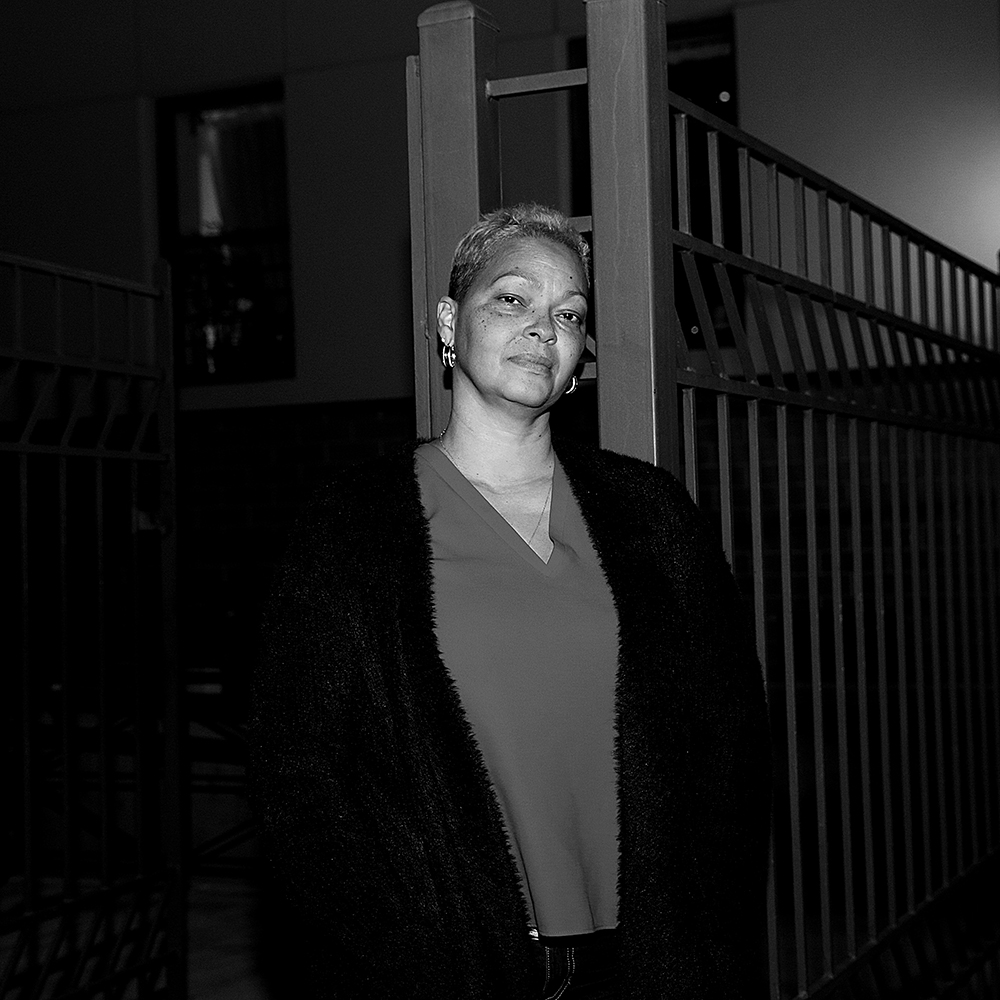
©Dorie Hagler, “Once, I wasn’t able to speak up for myself but now I can. I am the voice for all women who don’t have a voice or are not allowed a voice. Next week it will be 5 years since I was released from prison. And I am going to Washington to remind people that the women in prison are just like every other woman, mother, daughter, sister. But over 90% of women who are incarcerated are also victims of sexual violence. We have to talk about women and violence. Our very humanity is on the line.” Donna Hylton is a writer, speaker and criminal justice activist.
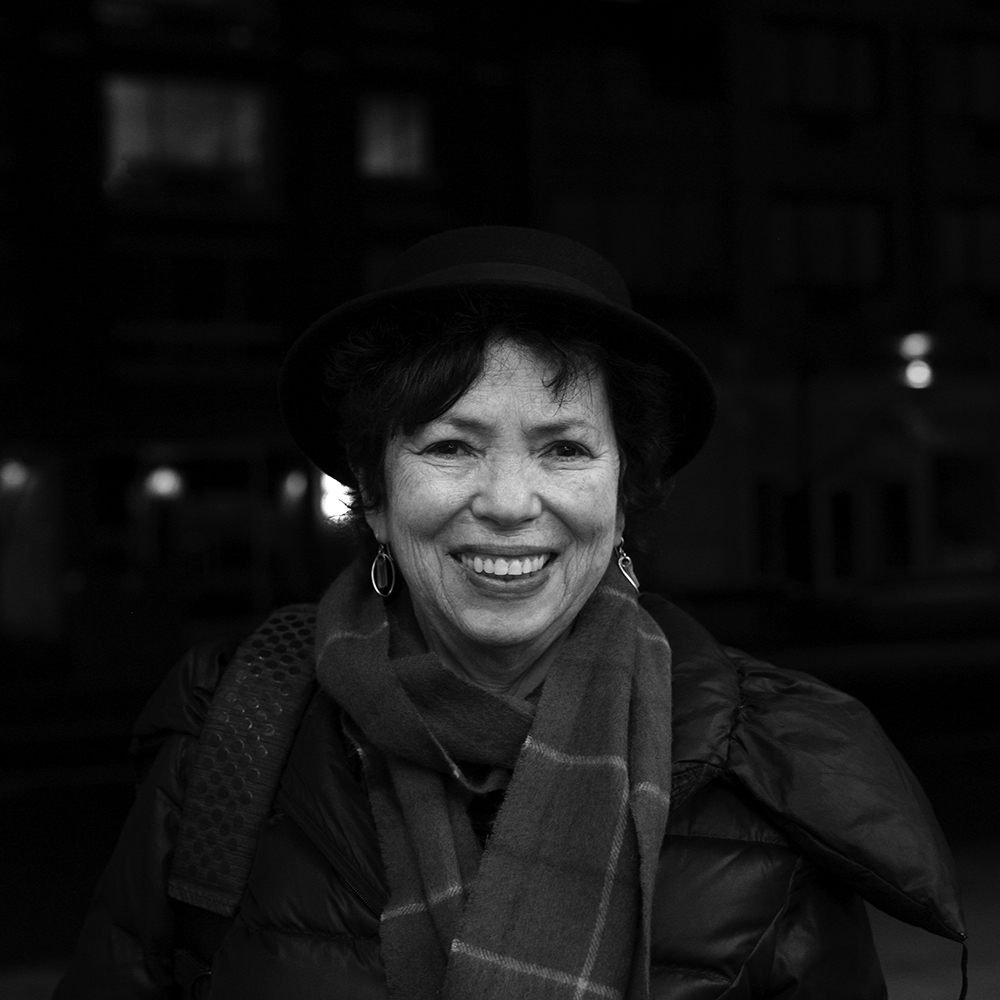
©Dorie Hagler, “When I was 21 years old I was introduced to my distant cousin, Barbara Rosner Seaman. She was a feminist, activist and author who focused on Women’s Health Issues. Through Barbara, I met and was inspired by many other feminists who were Barbara’s friends such as Betty Friedan, Gloria Steinen and Erica Jong. If I hadn’t met all of these women, if Barbara Rosner Seaman hadn’t been part of my family, my life would have been very different – meeting her at 21 was a very important life shaper. She was a networker and always supported and elevated those around her. Barbara didn’t care that I was school teacher, she loved my photography. True groundbreakers know the importance of being true to your voice and not allowing anything to stop you from being righteous.” – Meryl Meisler is a photographer and retired school teacher who taught in the NYC public school system for 31 years. MerylMeisler.com
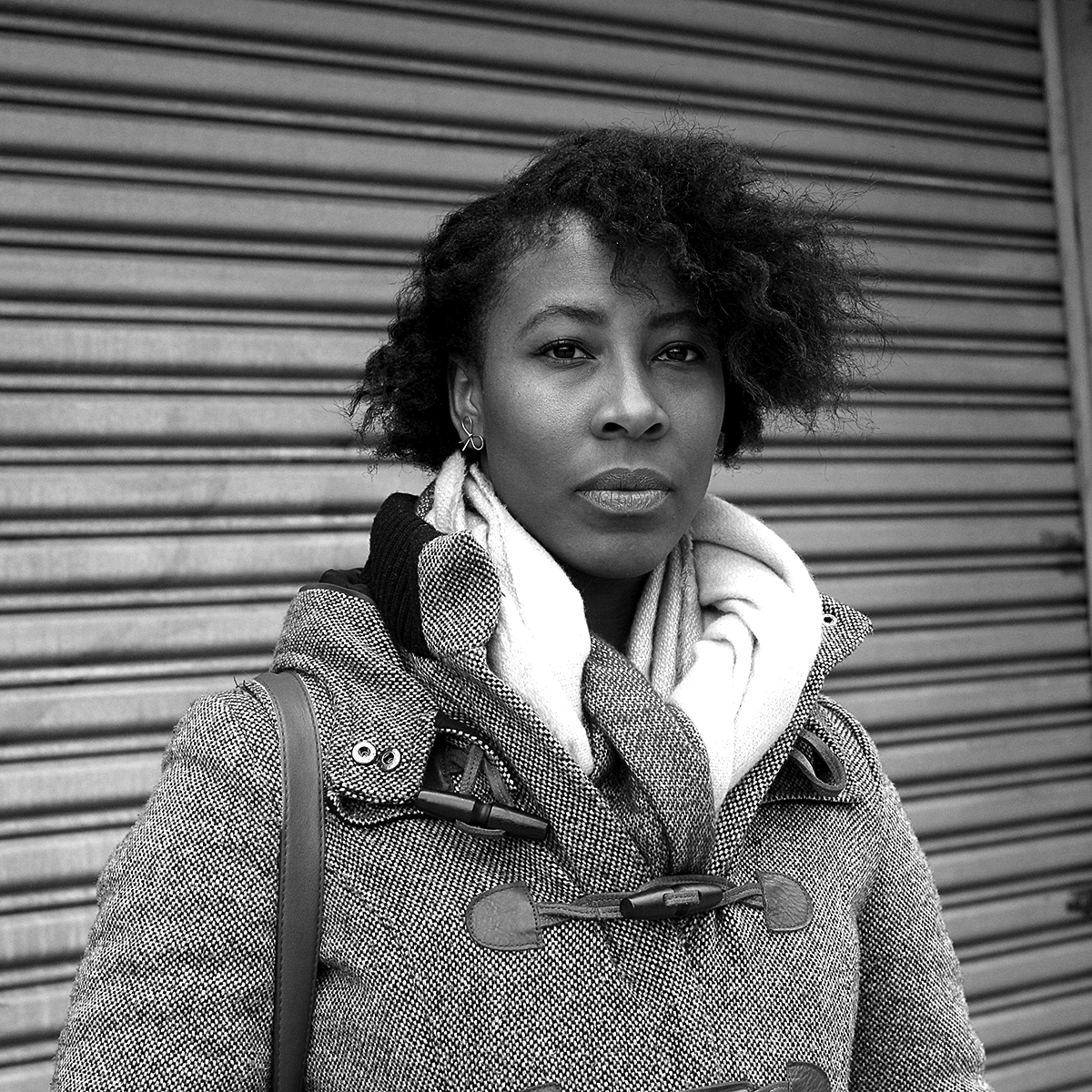
©Dorie Hagler, “I see it like this: In the past it was sort of as if women were handed an index card of life, sort of like a recipe card. The card included how you live and at some point, depending on your station in life, you had the choice to place it in one of the few recipe boxes: teacher, spinster, mother, wife. Fuck that index box. I always knew I wanted to write my own index card. Growing up in the foster care system there were so many stereotypes associated with me. My adoptive mother was a great teacher, but she was a baby boomer. She had certain ideas about my index card. I had to learn to sew, wear dresses. I think we never really bonded because I didn’t want that recipe card. I didn’t want to choose from the boxes she presented. In the last eight years, I’ve written my own recipe card for life.” Shareena Casterline owner of @eat.by.shareena
Posts on Lenscratch may not be reproduced without the permission of the Lenscratch staff and the photographer.
Recommended
-
Shinichiro Nagasawa: The Bonin IslandersApril 2nd, 2024
-
The International Women in Photo Association Awards: Lorraine Turci: The Resilience of the CrowMarch 16th, 2024
-
The International Women in Photo Association Awards: Rayito Flores Pelcastre: Chirping of CricketsMarch 14th, 2024
-
The International Women in Photo Association Awards: Louise Amelie: What Does Migration Mean for those who Stay BehindMarch 12th, 2024
-
Brandon Tauszik: Fifteen VaultsMarch 3rd, 2024


